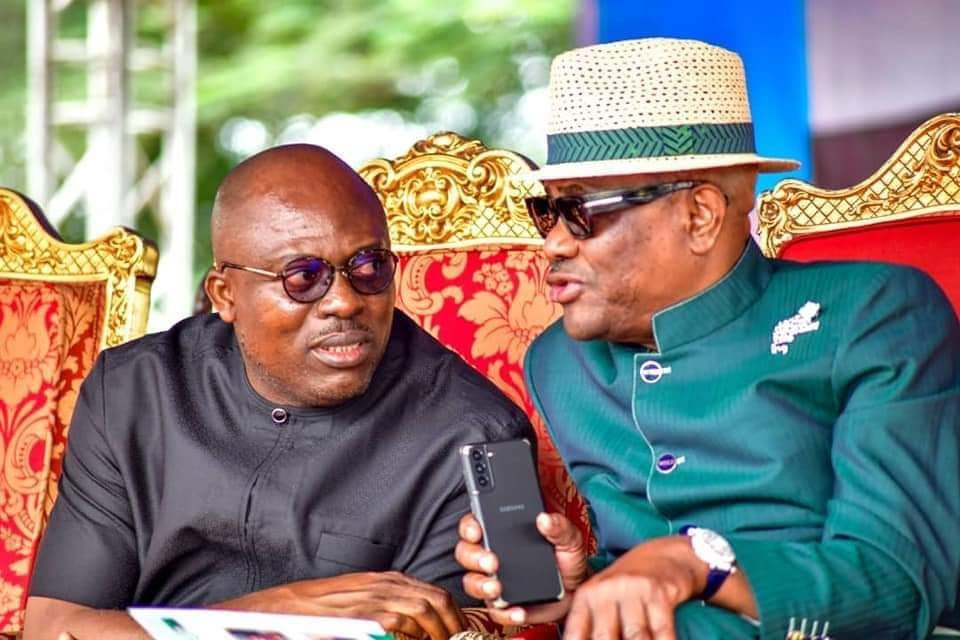The political landscape of Rivers State, Nigeria, has been characterized by a tumultuous power struggle between former Governor Nyesom Wike, now Minister of the Federal Capital Territory, and his successor, Governor Siminalayi Fubara. This conflict, marked by accusations, retaliatory actions, and interventions from the highest levels of government, has disrupted governance and threatened the stability of the state. The recent announcement by Wike of a reconciliation signifies a potential turning point, though the fragility of past agreements casts a shadow over the prospect of lasting peace. Understanding the complexities of this conflict requires examining its origins, evolution, and the various attempts at resolution.
The seeds of discord were sown shortly after Fubara’s inauguration in May 2023. While Fubara was Wike’s preferred successor, the transition of power was not seamless. Differences emerged, escalating into open confrontation. By October 2023, the rift had widened considerably, with lawmakers loyal to Wike initiating impeachment proceedings against Fubara. This move was met with a swift and controversial response: the demolition of the State Assembly complex following a fire outbreak, a move that critics viewed as an attempt to stifle the impeachment process. This tit-for-tat exchange marked a significant escalation in the conflict, transforming a political disagreement into a full-blown power struggle. The relocation of the Assembly to temporary chambers further underscored the disruption to governance caused by the escalating tensions.
The ensuing months saw the conflict deepen, plunging Rivers State into a governance crisis. The power struggle paralyzed the state’s administration, hindering its ability to address critical issues and provide essential services to its citizens. As the situation deteriorated, President Bola Tinubu stepped in to mediate, brokering a fragile peace deal in December 2023. This agreement involved Fubara conceding several political appointments to Wike’s allies, a compromise aimed at diffusing tensions and restoring a semblance of stability. However, this proved to be a temporary reprieve, as the underlying issues remained unresolved.
The truce ultimately collapsed, and the conflict resurfaced with renewed intensity. The resurgence of hostilities underscored the deep-seated nature of the disagreements and the difficulty of achieving a lasting resolution. The failure of the initial peace deal highlighted the need for a more comprehensive and sustainable solution, one that addressed the root causes of the conflict rather than merely treating the symptoms. The renewed tensions ultimately led to a dramatic intervention by President Tinubu in March 2025.
Faced with the escalating crisis and its potential to further destabilize Rivers State, President Tinubu declared a state of emergency. This unprecedented move, which suspended Fubara’s executive powers for six months, was justified on the grounds of rising insecurity and administrative paralysis resulting from the protracted power struggle. The declaration of a state of emergency underscored the gravity of the situation and the president’s determination to restore order and stability. To oversee the state during this period, Tinubu appointed a sole administrator, former Chief of Naval Staff, Vice Admiral Ibok-Ete Ekwe Ibas (retd.), tasking him with navigating the turbulent political waters and restoring effective governance.
The state of emergency marked a significant turning point in the Rivers State crisis. While it represented a drastic intervention, it also provided an opportunity for a reset, a chance to address the underlying issues fueling the conflict in a more structured and controlled environment. The appointment of a neutral administrator aimed to create a space for dialogue and reconciliation, free from the immediate pressures of the political power struggle. This period of emergency rule allowed for a cooling-off period, providing an opportunity for all parties to reassess their positions and seek a path towards a more sustainable resolution.
Recent developments suggest a potential breakthrough. Wike’s public declaration of an end to the rift and his assertion of reconciliation with Fubara offer a glimmer of hope for the beleaguered state. His emphasis on forgiveness and moving forward signals a willingness to put the past behind and work towards a more constructive relationship. However, the fragility of past peace agreements and the presence of actors who, according to Wike, are actively trying to undermine the peace process necessitate cautious optimism. The road to lasting peace in Rivers State remains fraught with challenges, and the true test will be whether this newfound reconciliation can withstand the inevitable pressures and complexities of the political landscape.














